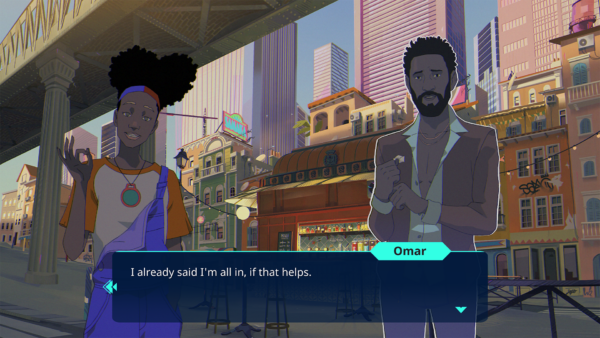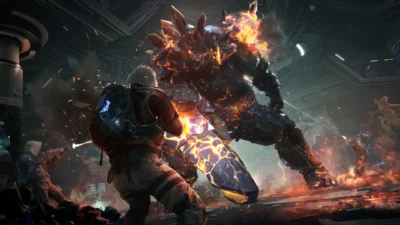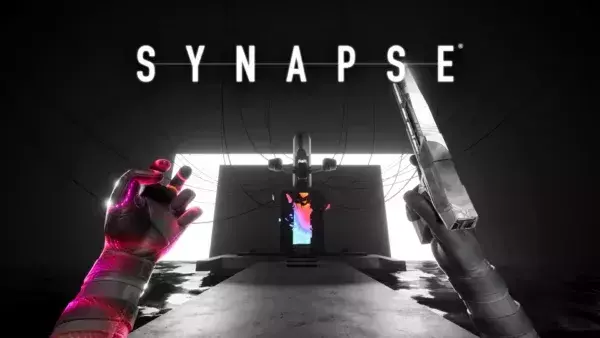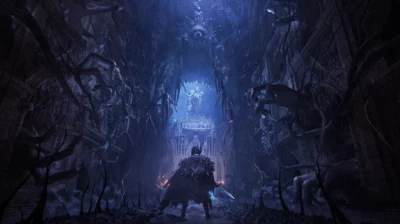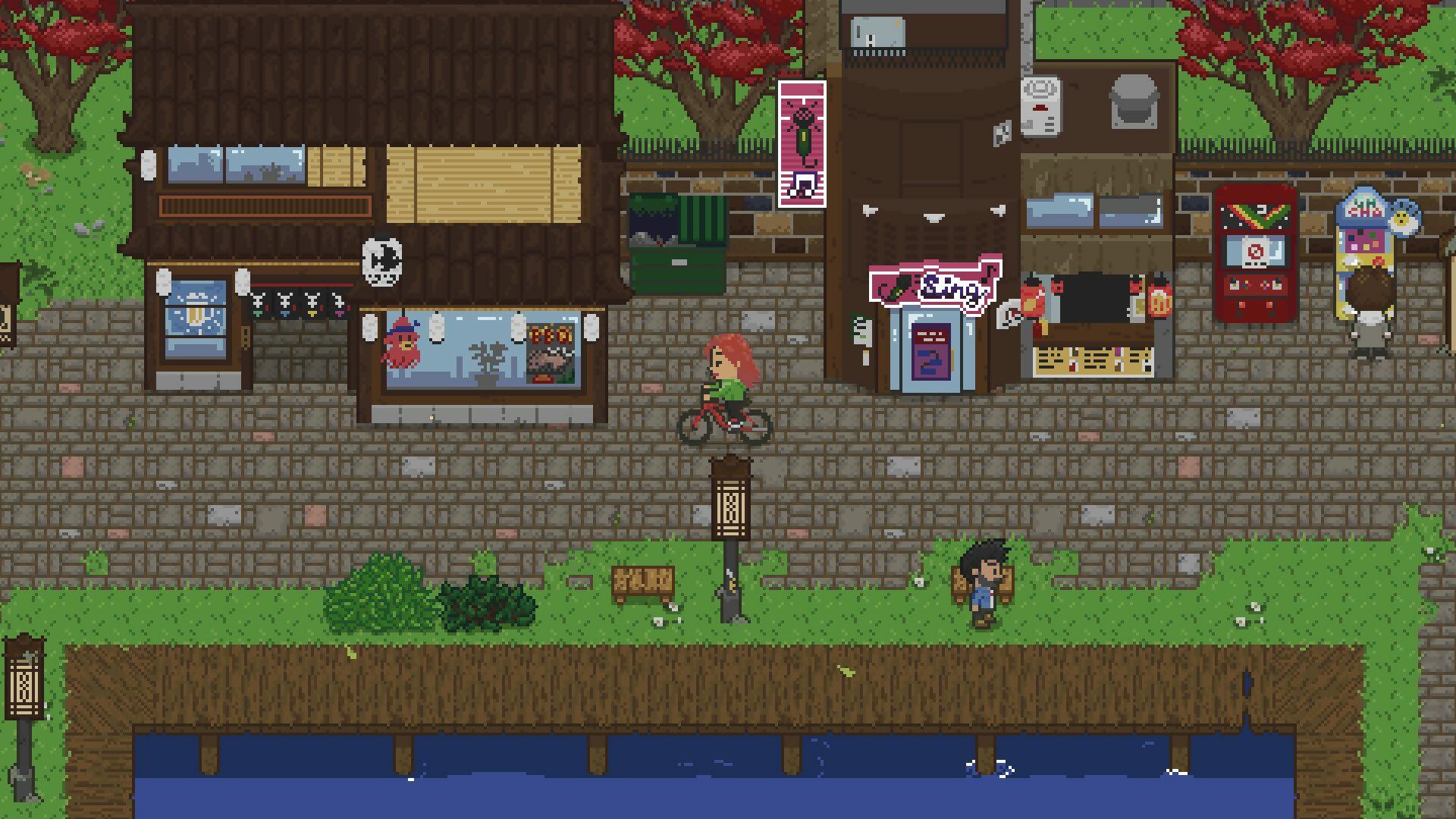
This article originally appeared in Wireframe #33, published in February 2020.
With movies like My Neighbor Totoro and Spirited Away behind it, Studio Ghibli is among the most respected animation houses in the world. But its cultural influence has extended far beyond the realms of hand-drawn animation or even cinema; its fingerprints can be seen in video games, too, from the distinctly Ghibliesque Legend of Zelda: Breath of the Wild to indie studio Paralune’s Mythic Ocean.
“I think Studio Ghibli films are so influential because they’re the product of people who were born and raised in a completely different culture from the west,” says developer Dan Beckerton. “If you tell two people from two completely different cultures to imagine something and write or draw it, you’re likely to get two very different results. I think the shock of Studio Ghibli’s different-ness really stays with people.”
Spirited Away is a clear influence on Dan Beckerton’s current project, Spirittea. Like a celebrated sequence from that Oscar-winning film, the game’s partly set in a traditional Far Eastern bath house, where the surrounding countryside’s ghosts come to relax and ease the stresses of the afterlife. Spirttea, then, is what happens when you mix the social sim mechanics of Stardew Valley and Animal Crossing with the fantastical storytelling of animator Hayao Miyazaki; rather than spending your time growing and harvesting crops, you’ll be taking care of your spooky customers at the bath house – handing out towels, guiding them to a hot tub, and so forth – and roaming the countryside for more ghosts to coax into your establishment. “The whole bath house management aspect of Spirittea has a sort of puzzle game feel to it,” Beckerton explains. “Players can engage with this mechanic as much as they want. If they want to maximise their profits for the day, then great care will be needed when considering spirit placement. But if players just want a more relaxed management approach, then they can simply place spirits wherever they want. They’ll still earn money, just not as much.”
Spirittea’s whimsical management loop was inspired by Beckerton’s own visits to the Far East. Now based in Vancouver, Beckerton originally spent four years as an English teacher in South Korea, where he visited the country’s bath houses – known as jjimjilbangs – and generally soaking up the country’s atmosphere. “The layout can vary immensely between locations, and some may offer types of baths not available at others,” he recalls. “I once had to contain my laughter after seeing three heated barrels with three people’s heads poking out the top of them at one of the bath houses I visited in Japan. It’s simply not something you’d see in Canada.”

EarthBound is a reference point for Beckerton, which you can certainly see in the lead character’s design.
BATHS OF GLORY
It was in South Korea that Beckerton first started thinking about switching his career path towards the game industry, when he took up an online course in Unity. Returning to Vancouver, he made the brave (and “not recommended”, he adds) decision to work as a full-time game developer while living off his savings. “I was really enjoying life as a full-time indie game developer and was reluctant to let it go,” he says. “I made a deal with my wife that I would work super-hard on my next game, Spirittea, until November, at which point I would try a Kickstarter. If it was successful, I could continue to work on it fulltime. Otherwise, I would need to finally find a regular job.”
Thankfully, Spirittea’s campaign has been a success: at the time of writing, it’s already passed its CA$18,000 goal. As a solo developer, marketing and funding has, Beckerton says, proved to be one of his biggest challenges of the project so far. “I once looked at Kickstarter as a source of funding to make a game,” he says. “What I should have realised sooner – especially considering the name – is that Kickstarter is a great way to start your company or project. It very likely won’t be your solution to completing your first game, but it can help you build a community around your game while giving you a bit of pocket money to get started. Regardless of how my current campaign works out, I’ve made a ton of great fans and contacts in the industry, as well as learned a lot throughout the process.”

Spirittea is built in GameMaker Studio 2, with the ever-popular Aseprite used for sprite work and Reason 10 used for music.
Beckerton’s only about five months into development at the time of writing, so he’s remaining realistic about how long it’ll take to make his Ghibli-esque sim: he has ideas for numerous spirit characters to realise, as well as collectable figurines and a side-scrolling minigame that involves collecting magical tea leaves. “I’ve given myself the target of January 2022 to launch the game in Early Access, but that date may shift depending on if I need to find more regular work,” Beckerton explains. “I’ve got the basic framework set up for the game, but I’ve got loads more to do. The nice thing is, it’s not a daunting amount of work. I’m creating my dream project right now, and I’m enjoying watching it grow every day!”

Collecting will be an important part of Spirittea, whether it’s fishing, bug catching, or the figures you can win from a gacha machine in the nearby town.
LONE STAR
Created by Eric ‘ConcernedApe’ Barone, Stardew Valley is an inspiration to indie developers everywhere. Not only did Barone create his much loved farming sim entirely by himself, but the game’s also gone on to become a storming success, with over ten million copies sold to date. “It wasn’t until after I’d played the game that I learned about Eric Barone’s personal story,” Beckerton says. “It was incredibly inspiring to me to hear that one developer could not only make a game on their own, but also make a huge hit. I later heard similar stories with developers like Toby Fox creating Undertale, and Joakim Sandberg creating Iconoclasts. Though I didn’t have a background in anything game development trelated, I figured that there’s nothing I can’t learn if I try hard enough. Developers like Eric, Toby, and Joakim are the reason I took the first step and started making games.”
Spirittea is due for release on Steam later in 2022.


